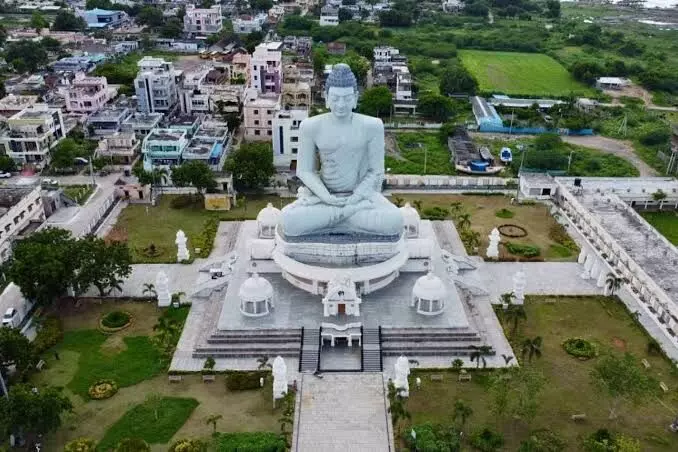$1.78 billion for the first phase of Amravati development, $800 million by World Bank
Amaravati to be a 217 square kilometer city to be developed in the East Coast of India
By Newsmeter Network
Amaravati development $ 800 million to be given by World Bank
New Delhi/ Amravati: World Bank support has been requested by government of India for development of Amaravati to accommodate 3.5 million people by 2050.
Amaravati to be a 217 square kilometer city. The $1.78 billion government program for the first phase of Amaravati’s development is supported by $ 800 million from the World Bank and $788.8 million from the Asian Development Bank.
Support from World Bank
Under the Amaravati Integrated Urban Development program in the first phase institutions and capacity building will be carried out to create a growth hub for the state and it’s residents. Local communities to be consulted by World Bank for the urban development and city projects. Focus will be on citizen engagement and participation in planning and development.
Transport infrastructure
A Unified Metropolitan Transportation Authority will be set up to plan and manage the city’s transport needs, and customer-focused utilities for basic services such as water supply and sewerage.
Job creation in Amaravati
According to estimates drawn by the government there can be 50,000 jobs created over the next five years in sectors like construction, agro-processing, clean manufacturing, and services.
Skill development
An estimated 17,000 participants of which 10,000 women will receive training for skill creation and inclusive social and community development. Landless laborers who worked in the area will receive skills training and access to employment opportunities. Interest free loans for self-employment will be provided.
Green initiatives
22 percent of residential areas for affordable housing schemes according to the Amravati Masterplan. The Program will develop climate-resilient infrastructure for the new city, including a 320-km arterial road grid served by low-carbon transport, 1,280 km of neighborhood roads, ducts for power and telecommunication connectivity, and city-wide systems for water supply, wastewater and stormwater drainage.
Management of floods
The design of Amaravati is keeping in mind the flood management system as the city will be close to river. According the plan, 30 percent of land for open spaces, creating retention water reservoirs, flood protection infrastructure and early warning systems for floods.
Land pooling
29,000 farmers have voluntarily contributed their agriculture land for residential and commercial plots in the new city. Government of Andhra Pradesh states that 90 percent of the land is assembled with them. The land required for infrastructure in core areas is also being negotiated with the landowners.
World Bank to reply on citizen feedback
The program has been designed keeping in mind the engagement of citizens and feedback of stakeholders. The Bank-supported Program will strengthen participatory mechanisms to guide city planning and development, and solicit inputs for livability and livelihood outcomes, especially for women, low-income groups, minorities and vulnerable groups. These include:
· A Citizens’ Committee to advise the government, village level offices and engagement of local community.
· AP will further improve the existing communication channels to create both physical and digital platforms to share ideas and suggestions across diverse group of stakeholders.
· AP will partner with non-governmental organizations to facilitate the communications with the stakeholders and help monitor the effectiveness of participation.
Grievance redress mechanisms
There are multiple avenues available to citizens for submitting grievances:
· A single-window Public Grievance Redress Management System for the state through an online portal.
· Grievances can also be sent in through the APCRDA website or at any of the 11 village-level offices or the weekly public meetings.
· During Program implementation, APCRDA will strengthen the grievance management system by setting up a dedicated unit and holding regular grievance audits.
The Program will ensure continued meaningful consultation with all stakeholders and provide robust channels for resolution of any grievances and concerns.